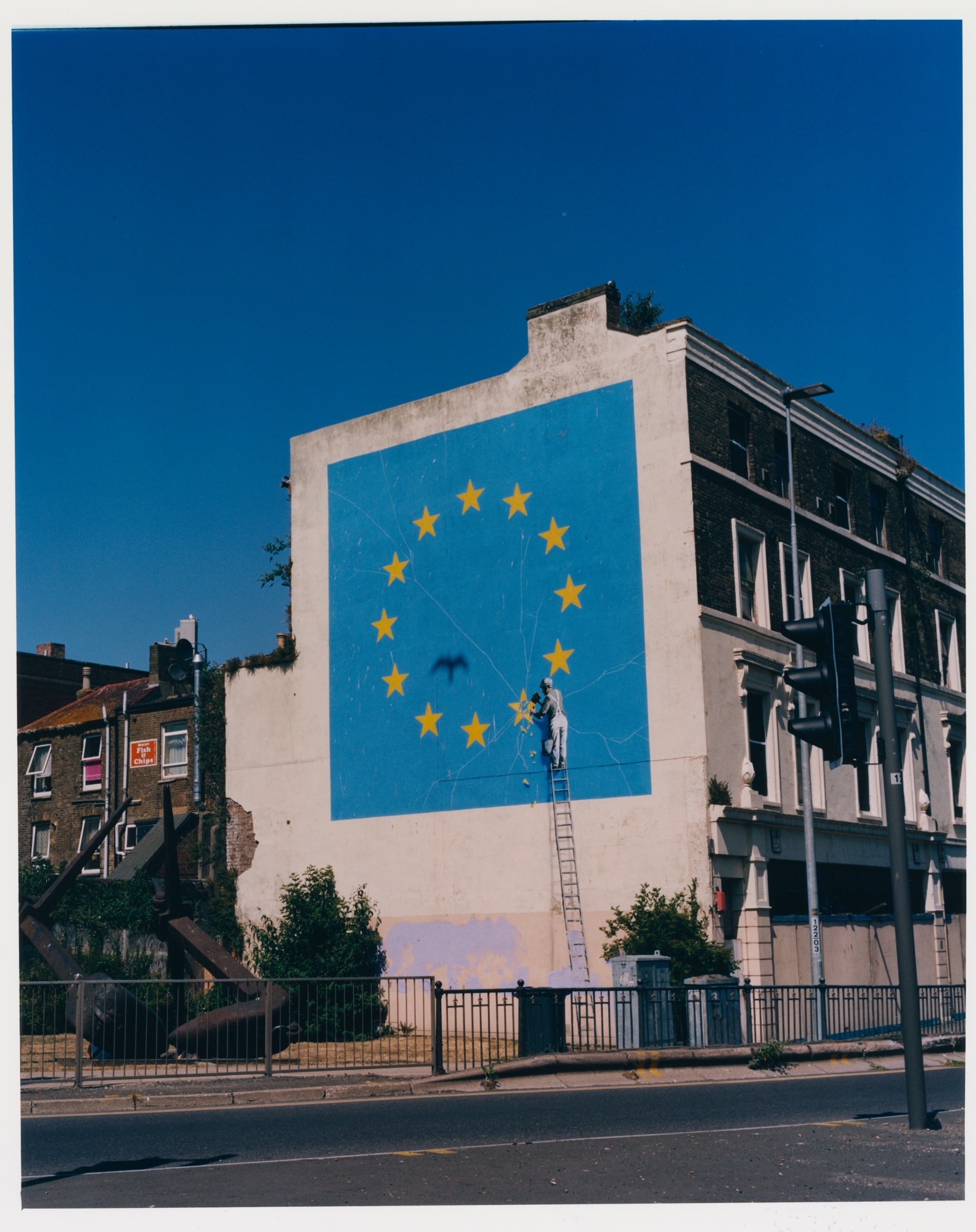In October of last year, we invited a series of young writers to reflect on what Britishness means to them for The Superstar Issue of i-D. From the nostalgia of home, to fears over rising rents, to the sense of displacement from the place we thought we once knew, our identity has never been more complex. So what does being British mean for a country facing its biggest shift in decades? And does it still matter? Read the full series here.
I had a two-part argument with my mum the other week – not beef or anything, but it was enough for her to roll her eyes and for me to get riled up. The first half of the argument happened when we were going through Brixton on the bus. “It’s really changed a lot, hasn’t it?” My mum remarked as we crawled through the traffic. “Yeah, it’s really bad.” I’d said, checking my phone. “What do you mean bad?” She asked. “Look around. The people we used to see aren’t here any more. Neither are the shops.” I told her, putting my phone in my bag so that I could start physically pointing out the differences to her. She smiled – she’s used to this from me – and nodded politely.
I love south London so much that I’ve got a tattoo across my left forearm to prove it, and I couldn’t have set my first novel Queenie, anywhere else. I’ve lived in most of it. When I was born, my mum and I lived in Clapham, then Croydon (haters will say it doesn’t count, but it does). We spent my most memorable early years in Norbury. Our neighbours were Turkish and I spent my evenings clambering over the garden wall to go and eat my second dinner at their house. By the time I was able to recognise cultural difference, the area that we lived in was buzzing with everyone and anyone, so I just thought that that was what life was.
When my mum met her partner, we all spent some time living with my grandparents in Streatham. Immigrants from Jamaica, my granddad had ensured they had the biggest house on the street; in the basement of that house was a flat occupied by a couple from Australia who were welcomed into my family like they were Jamaican too. When I was eight we moved to Lewisham, the blue borough. I went to a primary school with lots of children from different backgrounds. The turbulent times began when I went to a secondary school with less people like me. I was put in all of the lower sets and had ‘behavioral issues’ on my file. These years were rough years for many reasons. For years I was unofficially adopted by various friends and their families in Sydenham, Catford, Honor Oak, Camberwell, Brockley, Peckham. At the time I was temporarily saved by walks in the parks around me; I’d walk them day and night and always felt safe.
We moved down the road when I was fifteen; me, my mum, and a new little sister. Still in Lewisham, much happier, and much safer physically and mentally. In our new block lived pretty much one person from every culture and of every sexuality; our next door neighbour was an old, kind Irish man who my mum would coax out onto the balcony to have a chat so that he wasn’t lonely. She still calls him to check he’s okay even though we left Lewisham for Thornton Heath when I was 23. The streets were filthy, there was poverty everywhere, it was rowdy and the area was loud. We lived next door to a garage run by South Asian brothers who would have such violent fights the police would be called. But I still felt safe.
Three years later I moved to Balham with a boyfriend who almost immediately became an ex. I moved to Clapham (older and no wiser than at birth) where my neighbour was an old Jamaican man who lived with six kittens. Then I moved to Brixton, I went back to Streatham for a while, and now I live in Herne Hill, land of thirty-something middle class couples, pushchairs and flat whites.
The second part of the argument I had with my mum was on the phone. I reminded her that black people had been priced out of Brixton, and said that I’d made a mistake by moving round the corner from it. That day, too many people had barged past me, trodden on my foot or, the worst, had stared through me. I left my flat and walked until I found a small park I’d never seen before. As I moved through it I calmed down; first through the open green, then past the basketball courts and the bandstand, through the flower gardens and then forest like high maples until I emerged, blinking, next to King’s Hospital. By the time I made it to the other side of the park, I’d realised that being British means accepting that the places around you will change, and though you’ll change within them, certain things will stay the same.
Credits
Photography Sam Rock

